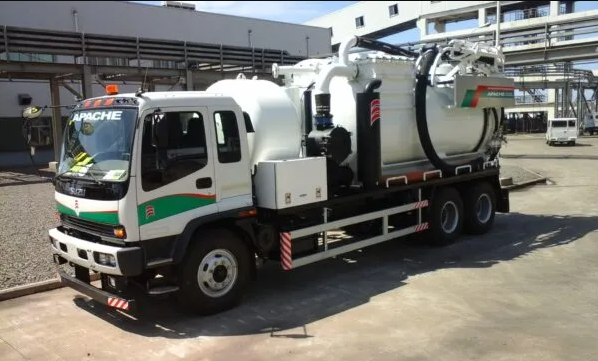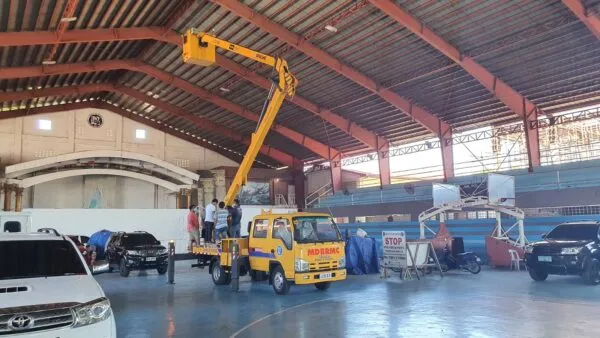Every vehicle owner knows the heart of a car lies in its transmission system. It’s what ensures smooth gear shifting, balanced power delivery, and overall driving comfort. When transmission problems arise, many drivers are tempted to visit a general mechanic, but few realize the importance of consulting a transmission specialist. These professionals possess deep technical knowledge and specialized tools to diagnose and repair issues that standard mechanics might overlook. Whether you drive a manual or automatic, a transmission specialist ensures every component operates efficiently, preventing further damage and unnecessary expenses.
Understanding the Role of a Transmission Specialist
A transmission specialist is more than just a mechanic—they are experts trained to handle one of the most complex parts of any vehicle. Unlike general technicians, these specialists focus solely on diagnosing, repairing, and maintaining transmission systems. Their work requires precision and a detailed understanding of how gears, clutches, and torque converters interact within different vehicles. They often use advanced diagnostic equipment to detect even the smallest issues before they escalate into major problems.
These experts undergo continuous training to keep up with modern car technologies, especially as vehicles become more dependent on electronic and computerized systems. Their insight ensures that whether your car struggles with shifting delays or odd noises, the cause is correctly identified and resolved. Choosing a transmission specialist means entrusting your vehicle to someone who understands its intricate systems inside out.
Common Transmission Issues a Specialist Can Identify Early
Every car exhibits warning signs before a transmission failure, and a transmission specialist is skilled at spotting them early. Issues such as slipping gears, delayed acceleration, grinding sounds, or fluid leaks often indicate internal wear or low transmission fluid. While these may seem minor, ignoring them can lead to costly damage that might require a complete rebuild or replacement.
A professional inspection can reveal hidden problems that the average car owner might overlook. Specialists rely on both manual and computerized diagnostic tests to evaluate the condition of the system. This helps them separate minor adjustments from serious mechanical failures. Detecting problems early prevents breakdowns and maintains optimal performance for years to come. Regular visits to a transmission specialist save you from unexpected repair bills and help your vehicle stay roadworthy longer.
The Benefits of Working with a Certified Transmission Specialist
One of the biggest advantages of working with a certified transmission specialist is the assurance of expertise and quality. They use specialized tools and genuine OEM parts to restore transmissions to their best condition. This guarantees long-lasting performance and smooth gear operation. Certified specialists also offer warranties on their work, giving drivers peace of mind.
Here are key benefits of hiring a transmission expert:
- Access to factory-approved diagnostic tools
- Assurance of proper repair methods and high-quality parts
- Accurate estimates and transparent communication
- Extended transmission lifespan through precision work
- Improved fuel economy and performance
A transmission specialist doesn’t just fix your car; they help you understand what’s wrong and how to prevent it from happening again. Their approach emphasizes both accuracy and education, helping vehicle owners make informed decisions about maintenance and repair.
Repair, Rebuild, or Replace: How Transmission Specialists Decide
Determining whether to repair, rebuild, or replace a transmission is one of the most important decisions a car owner faces. A transmission specialist performs a thorough inspection to assess internal wear, fluid quality, and component condition. They then explain the options available, helping you choose the most cost-effective solution for your car’s needs.
- Repair: Ideal for minor issues like seal replacements or valve adjustments.
- Rebuild: Recommended when several internal parts are worn but the housing is still solid.
- Replace: Necessary when the transmission is beyond economical repair.
Each choice depends on the extent of the damage, the age of the vehicle, and the owner’s budget. A transmission specialist ensures honesty throughout the process, avoiding unnecessary replacements. Their detailed evaluation guarantees you get the most value for your money while keeping your car running safely.
How to Choose the Right Transmission Specialist for Your Vehicle
Selecting the right transmission specialist can make a significant difference in repair quality and cost. Look for professionals who have recognized certifications, years of hands-on experience, and positive customer feedback. Reliable specialists provide clear estimates, show you damaged components before replacing them, and maintain open communication about progress and pricing.
When choosing your specialist, consider these points:
- Check for certifications such as ASE or manufacturer training
- Ask about experience with your specific vehicle brand
- Read verified customer reviews or testimonials
- Confirm warranty coverage on repairs
- Avoid shops that give unclear or rushed estimates
Transparency and professionalism are signs of a dependable transmission expert. Taking time to find a reputable specialist ensures your car receives the attention it deserves from someone who values long-term reliability over short-term fixes.
Preventive Maintenance Tips Recommended by Transmission Specialists
Preventive maintenance is the foundation of transmission health. According to many transmission specialists, most transmission failures can be avoided with consistent upkeep. Simple actions like checking transmission fluid regularly, monitoring for leaks, and servicing the system according to manufacturer guidelines can greatly extend its lifespan.
Here are essential maintenance tips:
- Change transmission fluid and filter as recommended
- Use only the correct type of transmission fluid
- Avoid aggressive driving or towing heavy loads unnecessarily
- Warm up your vehicle before driving in cold weather
- Schedule inspections every 30,000 to 60,000 miles
These steps minimize wear and prevent overheating, which is a common cause of transmission damage. Listening to your specialist’s advice and acting promptly on warning signs will keep your transmission working efficiently for years.
How Transmission Specialists Support Modern Vehicle Technology
As vehicle technology evolves, so does the complexity of transmission systems. Modern cars rely on computerized components and sensors to manage shifting patterns and torque distribution. A transmission specialist stays updated on these advancements through continuous education and technical training. They understand how to program, calibrate, and service transmissions in hybrid, electric, and high-performance vehicles.
Specialists use advanced diagnostic software to detect electronic and mechanical faults quickly. This ensures that even complex systems like dual-clutch or continuously variable transmissions (CVTs) operate flawlessly. Their role is crucial in maintaining both performance and safety in today’s technology-driven vehicles. Keeping up with these innovations allows them to provide services that meet the needs of modern drivers.
Cost Factors and Transparency in Transmission Services
Transmission repairs can be expensive, but working with a transmission specialist ensures you get honest and accurate pricing. Costs depend on factors like vehicle model, transmission type, and the extent of damage. Specialists typically provide detailed estimates and explain every line item before beginning repairs. This level of transparency helps build trust and prevents misunderstandings.
Typical services include diagnostics, fluid replacement, part repairs, and rebuilds. Some specialists offer flexible financing or maintenance plans to make repairs more affordable. Choosing a professional who values open communication means you’ll always understand what you’re paying for. While high-quality service might cost more upfront, it prevents repetitive issues and future breakdowns—saving you money over time.
Why DIY Fixes Rarely Work for Transmissions
Transmission repair is not a do-it-yourself task. Many car owners attempt to fix issues using online tutorials, only to worsen the damage. Modern transmission systems contain hundreds of intricate parts, sensors, and pressure lines that require precision tools and specialized expertise. A transmission specialist has the training and experience to diagnose problems correctly without causing further harm.
Common DIY mistakes include using the wrong fluid, misaligning internal parts, or overlooking hidden electronic faults. These errors often lead to complete system failure, resulting in higher costs. Trusting a specialist means your car receives proper handling, genuine parts, and factory-approved repair methods. Professional care ensures that your transmission performs safely and efficiently under all driving conditions.
Frequently Asked Questions (FAQ)
What is the difference between a mechanic and a transmission specialist?
A mechanic works on general vehicle systems, while a transmission specialist focuses solely on the gearbox and drivetrain components, offering deeper expertise and diagnostics.
How often should I have my transmission inspected?
It’s recommended to have it checked every 30,000 to 60,000 miles or whenever you notice performance issues.
What are the signs I need a transmission rebuild?
If you experience slipping gears, fluid leaks, or grinding noises, it could indicate internal wear that requires a rebuild.
Can transmission problems affect fuel efficiency?
Yes. A malfunctioning transmission can cause your engine to work harder, leading to reduced fuel economy.
Is it worth rebuilding an old transmission instead of replacing it?
In many cases, rebuilding can restore performance at a lower cost, especially when the transmission housing is still in good condition.
How long does a transmission repair or rebuild typically take?
Repairs can take one to three days, while rebuilds may take up to a week depending on parts availability and complexity.
Does regular maintenance really prevent transmission failure?
Absolutely. Regular maintenance is the most effective way to prevent major damage and extend the lifespan of your transmission.
Takeaway
A transmission specialist is an invaluable partner in keeping your vehicle running smoothly and efficiently. Their in-depth knowledge, precision tools, and dedication to quality ensure your transmission operates at peak performance. Whether you’re seeking preventive care, repairs, or complete rebuilds, trusting a qualified expert saves time, money, and stress. Investing in specialized transmission service today means enjoying a safer, smoother drive for years to come.








